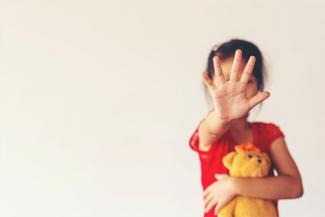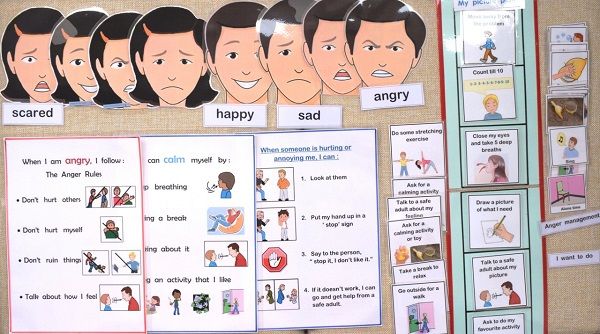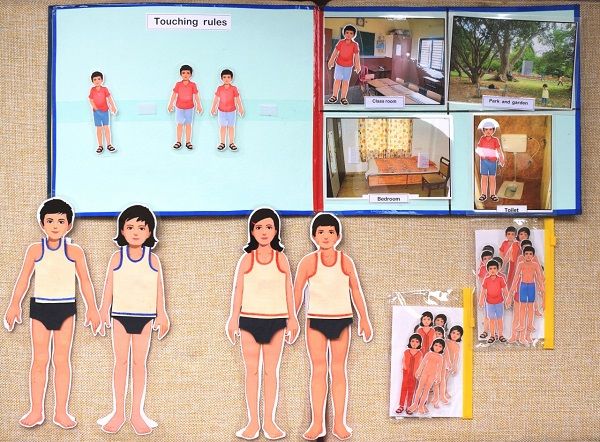
Personal safety and sexuality education is critical for children and young individuals with Intellectual disabilities, auditory or visual impairments. But it often does not get the right level of attention from parents and teachers. Enfold Proactive Health Trust, a Bangalore based NGO, has devised a project ‘Suvidha’ to address this gap. Read on.
All children, irrespective of the ‘normalcy’ of their neural or physical development, have a right to safety and dignity. Personal safety education for prevention and reporting of sexual abuse is their right. Information and discussion on sexuality helps adolescents navigate puberty with dignity.
Findings of GOI study on child abuse
According to Government of India study on child abuse (2007), 53% of the children said that they had faced some form of sexual abuse. Majority of perpetrators were known to the child. The number of boys reporting sexual abuse was more than the number of girls.
Often adults consider children with intellectual disabilities to be innocent, infantile and incapable of decision making. They might be labelled as asexual or hypersexual and are often punished for failing to deduce and conform to social norms. They may also be denied the right to privacy, right to set boundaries regarding touches, and information on sexuality and safety.
Project Suvidha
Why Enfold India undertook Project Suvidha:
In Indian society, as in many parts of the world, parents and teachers still shy away from discussing sexuality or personal safety with children, or do not think it is necessary. The silence and underlying shame and stigma also makes children vulnerable to sexual abuse. Teacher training courses often lack effective, culturally appropriate teaching materials on sexuality and safety for neuro- typical as well as neuro - atypical children, making it difficult to impart this education to individuals with disabilities.
Since 2001, Enfold Proactive Health Trust, that works towards building safe, inclusive communities, has worked successfully with neurotypical children, their parents and teachers, to support children in learning personal safety, responsible sexuality and life skills in an age appropriate, culturally suitable and value based manner. Equipped with adequate experience and expertise, Enfold undertook Project Suvidha with the aim to empower caregivers, teacher and trainers to support young children and adolescents living with different disabilities, learn personal safety and sexuality etiquette.
The Suvidha Kit is complete with a facilitator’s manual with preparatory reading material, activities, social scripts, flash cards and other teaching aids. Audio books, text in Braille and embossed images will make it useful for individuals with auditory and visual impairments.
Personal Safety Education:
Rules are for our safety. Personal safety rules are derived from socially acceptable norms and are based on our current laws. We can teach the child about personal safety, personal space, safe and unsafe touch without shame or embarrassment, just as we teach our children road safety rules.
Why teach personal safety rules:
1. Children with special needs are easy targets for sexual abuse
Disabilities (especially intellectual disability), multiply several times the likelihood of sexual abuse, due to several factors including -
- the unique features of the disability itself, risk increases with the degree of disability.
- seeking affection due to isolation and lack of socializing
- dependency on others for personal care
- communication difficulties
- passively obeying adults, especially carers and others in authority
- lack of sexuality and personal safety education
2. Children have easy access to inappropriate sexual content through print and visual media.
3. Children learn to report anyone who breaks personal safety rules. Empowering the child is better, as round the clock monitoring by adults is not possible. Through Personal safety rules, a clear guideline is available for the child to recognize, resist and report unsafe behaviour.

What and How to Teach:
1. Use appropriate words like ‘Safe Touch’ and ‘Unsafe Touch’. Avoid commonly used, but confusing and moralistic terms like “Good Touch/ Bad Touch”. Due to the structure and function of genitals, a ‘bad’ touch can feel good. Children also feel that if something ‘bad’ happened to them, they have somehow become bad!
2. Name private parts –use simple, clear, unambiguous words you are comfortable with - like susu place/ potty place/ genital/ vulva/ penis/ scrotum /anus. Avoid using colloquial terms or euphemisms like flower/ chee-chee or shame-shame.
3. Personal Safety Rules for children:
- Clothing rule – I keep my private parts covered in front of others. Though I don’t cover my mouth, it is private too
- Touching rules – I do not touch my private parts in front of others
- Talking rules- I talk about private parts with Safe Adults. I ask questions and discuss concerns about private parts with them.
Others need to follow the same rules with me.

4. Phone and computer rules for older children
Teach all the rules using simple, clear unambiguous language. Use natural environment teaching and maintain consistency. Same rules apply online as offline.
5. Safe Adults - follow personal safety rules themselves for themselves and others. A child can reach out to them in case of any need or clarification. For children with ID, identify and name Safe Adults.
6. Teach safe interactions
7. Discuss Touches and Permissions.
Emphasise on:
- We do not touch anyone else in a way that they don't like and if it is against rules
- It's okay to say 'No'
- if you don't like it
- if it is against the rules.
8. Discuss Personal Space/ boundary as the space around us that we consider our own. Discuss rules to be followed by self and others.
9. Teach the Personal Safety Guide: NO—GO—TELL to help children report unsafe behaviour.
Explain:-
“If someone breaks personal safety rules, say ‘NO’ to that person, if you can.”
“GO away from that person as and when you can.”
“If online, stop talking to the person. GO offline”
“TELL a safe adult about this person because he/she is doing something unsafe and has to be stopped. Keep telling until someone listens and takes steps to help you.”
Principles of Personal Safety Education for Children with Disabilities
Most adults care for children and want to keep them safe. Tips that they should follow consistently.
- Avoid being overbearing, overprotecting or alarming.
- Focus on ability: use what children CAN do to keep themselves safe.
- Give clear instructions and black and white rules
- Same rules need to apply for all caregivers.
- Avoid exposure to television/ video games
- They create illusionary expectations.
- Viewers tend to imitate and play out what they have seen.
Read Part 2: Sexuality education for children and young individuals on the autism spectrum and those with Intellectual disabilities.
Authors :
Dr Sangeeta Saksena, Co founder Enfold Proactive Health Trust, Head Project Suvidha
Renu Singh, Consultant & trainer, Project Suvidha, Enfold
Special Educator & mother of a girl child with Autism
You can reach Enfold India at http://enfoldindia.org/ or https://www.facebook.com/EnfoldIndia/






